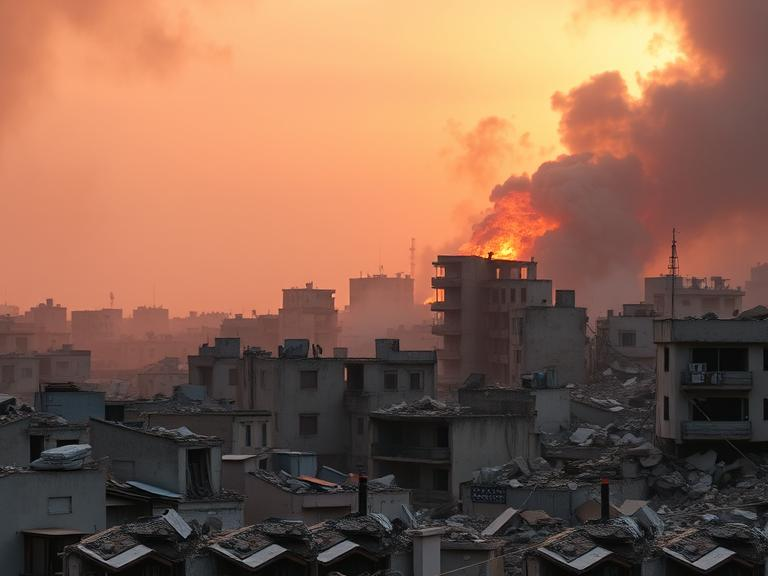Israel-Gaza Conflict: Latest Developments, Humanitarian Crisis, and Global ReactionsThe ongoing conflict between Israel and Gaza has escalated significantly in 2025, with mounting casualties, widespread destruction, and a deepening humanitarian crisis. As violence intensifies, ceasefire negotiations remain uncertain, and global leaders struggle to mediate a resolution. This article provides an in-depth analysis of the latest developments, the humanitarian situation, and the potential geopolitical impact of the war.
The Current Situation in Gaza
Israel has intensified its airstrikes on Gaza, targeting Hamas strongholds, infrastructure, and residential areas. Overnight bombings have resulted in at least 23 deaths, including women and children, adding to the already devastating toll. Reports indicate that since March 18, over 730 Palestinians have died, bringing the total death count to more than 50,000 since the conflict reignited in October 2023.
The Israeli Defense Forces (IDF) justify their actions by stating that they are eliminating Hamas militants responsible for attacks on Israeli territories. However, critics argue that civilian casualties are disproportionately high, raising concerns over potential violations of international humanitarian law.
Humanitarian Crisis Worsens
One of the most pressing concerns in the region is the worsening humanitarian crisis. Gaza has been under an Israeli blockade for weeks, restricting the entry of food, fuel, and medical supplies. Hospitals are on the brink of collapse, with limited resources to treat the injured. The lack of clean water and electricity has further exacerbated the dire living conditions for over 2.2 million Palestinians.
Aid organizations, including the United Nations and the Red Crescent, have called for immediate intervention to prevent a catastrophic famine. International pressure is mounting on Israel to ease restrictions and allow humanitarian aid into the region. However, the Israeli government remains firm on its stance, linking any relief efforts to Hamas’ cooperation in ceasefire negotiations.
Diplomatic Efforts and Ceasefire Talks
Amid the escalating violence, Egypt has proposed a new ceasefire deal aimed at de-escalation. The plan suggests that Hamas provide proof of life for Israeli hostages in exchange for a gradual withdrawal of Israeli troops from Gaza. While Israel has expressed conditional openness to the proposal, Hamas has yet to formally respond.
The U.S., the European Union, and the United Nations are actively involved in diplomatic discussions to end hostilities. However, key challenges remain, as Israel demands the complete disarmament of Hamas, while Hamas insists on an end to the blockade and military operations.
Israel’s Strategy: Plans for Reoccupation?
Reports indicate that Israel’s military, backed by far-right ministers, has developed plans for the potential reoccupation of Gaza. The strategy involves deploying combat divisions to establish full control over large parts of the territory, effectively dismantling Hamas’ power structure. This move, if executed, could lead to mass displacement of Palestinian civilians, raising alarms about a deepening refugee crisis.
Critics argue that such a military strategy could backfire, fueling further resistance and global condemnation. Protests have erupted worldwide, with demonstrators calling for an immediate ceasefire and an end to the violence.
Global Reactions and Geopolitical Implications
The international community is deeply divided over the conflict. While the U.S. and several European nations continue to support Israel’s right to self-defense, many countries, including Turkey, South Africa, and several Arab nations, have condemned the military actions, labeling them as war crimes.
At the United Nations, resolutions calling for a ceasefire have faced repeated roadblocks due to vetoes from key Security Council members. Meanwhile, tensions in the Middle East are rising, with fears that the conflict could spill over into neighboring regions.
What Lies Ahead?
The Israel-Gaza conflict remains one of the most pressing humanitarian crises of 2025. With thousands of lives lost and millions suffering, the urgency for a diplomatic resolution has never been greater. As ceasefire negotiations continue, the world watches closely, hoping for an end to the bloodshed and a path toward lasting peace.For real-time updates on the Israel-Gaza conflict, follow trusted news sources and humanitarian organizations actively working on the ground.




